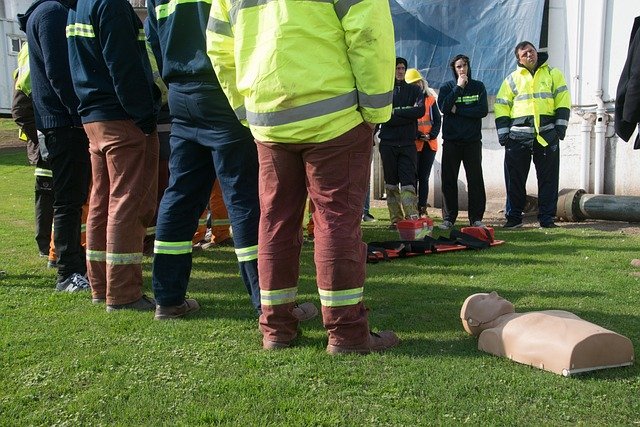Securing Your Future: The Path to Becoming a Professional Security Guard
The role of a security guard is crucial in maintaining safety and order in various settings, from commercial properties to public events. As the demand for skilled security professionals continues to grow, many individuals are considering this career path. This article will explore the essential steps to becoming a professional security guard, including the necessary training, certification, and licensing requirements.

The training curriculum often includes:
-
Basic security principles and practices
-
Legal powers and limitations
-
Emergency response procedures
-
Effective communication skills
-
First aid and CPR
-
Report writing and documentation
Many training programs also incorporate practical exercises and simulations to prepare candidates for real-world scenarios they may encounter on the job.
How does one obtain a security guard certification?
Certification is a crucial step in demonstrating competence and professionalism in the security industry. While specific requirements vary by location, most certifications involve completing approved training courses and passing a written examination.
Common security guard certifications include:
-
Security Officer Certification
-
Unarmed Security Professional Certification
-
Armed Security Professional Certification (for those pursuing armed positions)
To obtain certification, candidates typically need to:
-
Complete the required training hours
-
Pass a background check
-
Submit fingerprints for identification purposes
-
Pass a written exam covering security principles and practices
-
Pay the necessary certification fees
It’s important to note that certifications often require periodic renewal, which may involve additional training or continuing education credits.
What are the licensing requirements for security guards?
Licensing is a legal requirement in most jurisdictions for individuals working as security guards. The licensing process ensures that security professionals meet minimum standards of competence and character. While requirements can vary, common elements of the licensing process include:
-
Age requirement (usually 18 years or older)
-
Completion of mandated training hours
-
Passing a criminal background check
-
Submitting fingerprints and identification documents
-
Paying licensing fees
Some jurisdictions may have additional requirements, such as:
-
Drug testing
-
Psychological evaluation (especially for armed positions)
-
Proof of citizenship or legal residency
-
Character references
It’s crucial to research and comply with the specific licensing requirements in your area, as working without a valid license can result in legal consequences.
What ongoing education is necessary for security guards?
The security industry is constantly evolving, with new technologies, threats, and best practices emerging regularly. As such, ongoing education is essential for security guards to maintain their skills and stay current with industry standards.
Many jurisdictions require security guards to complete annual or biennial refresher courses as part of their license renewal process. These courses typically cover:
-
Updates to security laws and regulations
-
Advances in security technology and equipment
-
Enhanced safety and emergency response procedures
-
Customer service and conflict resolution skills
Additionally, security professionals may pursue specialized training or advanced certifications to enhance their career prospects and expertise in areas such as:
-
Executive protection
-
Cybersecurity
-
Surveillance techniques
-
Terrorism awareness and prevention
How can one advance their career in the security industry?
Advancing a career in the security industry often involves a combination of experience, additional training, and specialization. Here are some steps security guards can take to progress in their careers:
-
Gain experience in various security settings
-
Pursue advanced certifications or specializations
-
Develop leadership and management skills
-
Stay informed about industry trends and technologies
-
Network with other security professionals and join industry associations
-
Consider pursuing higher education in criminal justice or a related field
What are the typical job prospects and salary expectations for security guards?
The job outlook for security guards remains positive, with steady demand across various sectors. According to the U.S. Bureau of Labor Statistics, employment of security guards is projected to grow 3% from 2021 to 2031, which is about as fast as the average for all occupations.
| Position | Median Annual Wage (May 2021) | Top 10% Earned |
|---|---|---|
| Security Guards | $31,470 | More than $50,310 |
| Gaming Surveillance Officers and Gaming Investigators | $35,300 | More than $60,510 |
Prices, rates, or cost estimates mentioned in this article are based on the latest available information but may change over time. Independent research is advised before making financial decisions.
Factors that can influence salary include:
-
Geographic location
-
Industry sector (e.g., government, casino, corporate)
-
Level of experience and certifications
-
Armed vs. unarmed positions
-
Specialized skills or responsibilities
In conclusion, becoming a professional security guard involves a combination of training, certification, licensing, and ongoing education. By meeting these requirements and continuously developing their skills, individuals can build rewarding careers in the security industry, contributing to public safety and order while advancing their professional growth.






